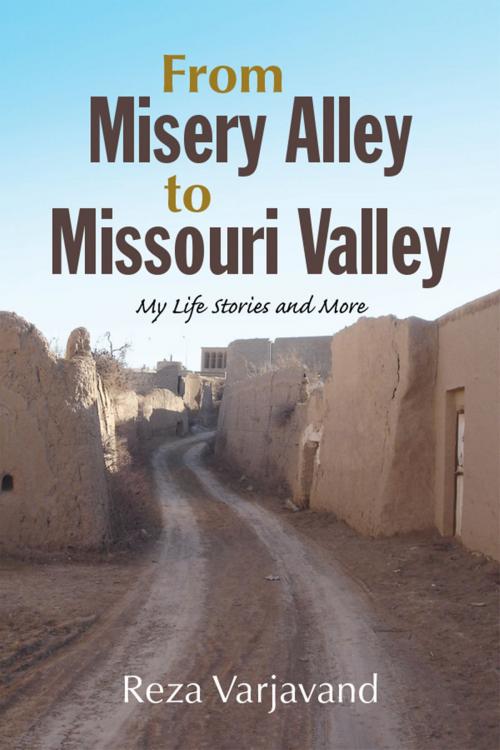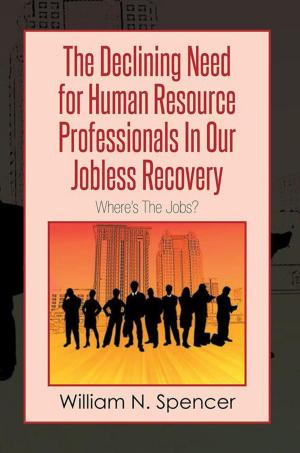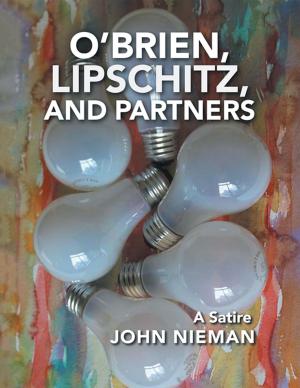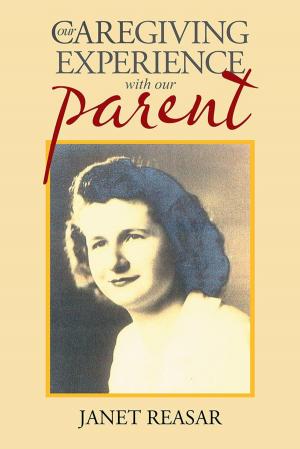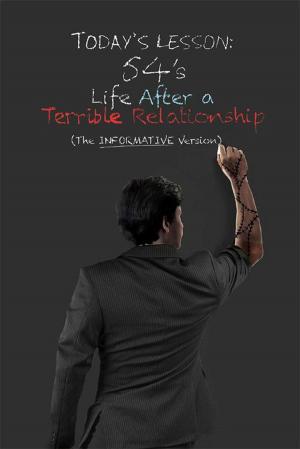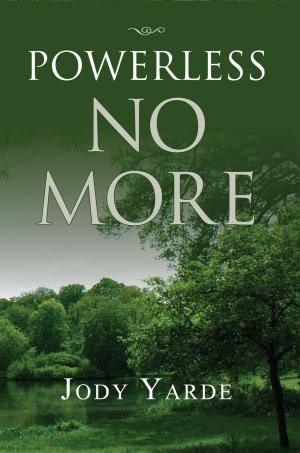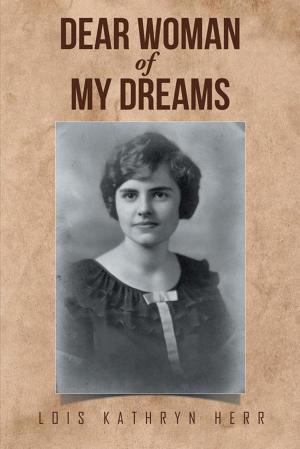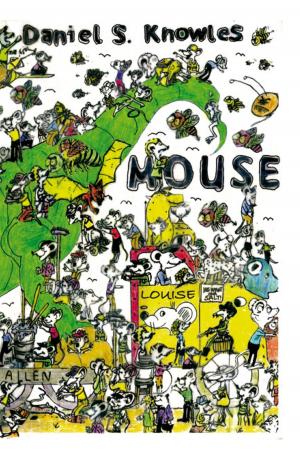From Misery Alley to Missouri Valley
My Life Stories and More
Nonfiction, Health & Well Being, Self Help, Self Improvement, Motivational| Author: | Reza Varjavand | ISBN: | 9781524533779 |
| Publisher: | Xlibris US | Publication: | May 14, 2009 |
| Imprint: | Xlibris US | Language: | English |
| Author: | Reza Varjavand |
| ISBN: | 9781524533779 |
| Publisher: | Xlibris US |
| Publication: | May 14, 2009 |
| Imprint: | Xlibris US |
| Language: | English |
Introduction
The act of writing is an act of optimism. You would not take the trouble to do it if you felt it didnt matter. Edward Albee
When I was visiting my native country of Iran a couple of years ago, I was fortunate to have been given an invitation to do a presentation at a local high school in my hometown. It was indeed a cherished and somewhat adventurous opportunity for me because I had not done any presentations to high school students before, let alone in Farsi, my native language. When I entered the big room where the presentation was to be given, I met a large group of enthusiastic students between the ages of 16 and 18. Because high schools in Iran are gender-segregated, the students were all boys. I had prepared nothing for them in advance because the invitation was spontaneous; consequently, I decided I would be spontaneous, engage them in conversation, and see what would develop. I began with some introductory remarks and then I thought I would capture their attention by asking them a question. I told them that good teachers are good story-tellers; they tell all sorts of stories in order to stimulate their students engagement in the subject matter and to get important points across. Then I asked the question, Do you know what the most important story is that you can tell? A few of the students raised their hands. One of them happened to be in the front row; his hand was higher than others, and I could tell from his facial expression that he had an interesting answer for me so I let him speak. He said the most important story a person could tell is the story of your life. His answer was not only remarkable but also unexpected because it was given by a 16 year old boy. I tried to imagine how many noteworthy life stories this very young man could tell; in any case, his answer set the tone for the rest of my presentation. I began to speak to the students about my own high school experience here in Iran when I was their age.
From that time on, I have often thought about this young man and his answer. This experience eventually led to my decision to gather together some of the things I had written in my spare time over the course of a few years and publish them in the form of a book. The content of this book is comprised of memories and some reflections on my life experiences from when I was growing up in Iran, as well as, musings on some contemporary issues of the day from my perspective as an economist, or a Muslim, or as an immigrant parent raising children in the United States.
I believe the words of Edward Albee quoted above. The act of writing is an act of optimism and I do it because I believe it does matter. For me, the optimism Albee refers to is similar to President Barack Obama writing about his audacity to hope, and this book is the result of my daring to dream. When I look back on my poor younger years in Iran as one of seven children of illiterate parents, my journey at times seems almost unimaginable. It was my great good fortune to have been the youngest of four sons born to my farmer father; therefore, I was not needed to help with the farm so I was freed from that filial responsibility. This freedom allowed me to dare to dream. My curiosity and love of learning drove me to work hard and to strive for something more coming to the United States, becoming an economics professor at a Chicago university, and raising bicultural children.
The second part of Albees quote is just as meaningful; I took the trouble to write because writing does matter. I believe that communicating ones experiences, thoughts, and opinions with others is one side of an essential conversation that has been going on since the dawn of civilization. Cavemen began this communication and conversation when they first felt compelled to share the pictures of their lives, and their world at that time, on the stone walls of their homes and gathering places. This conversation has continued
Introduction
The act of writing is an act of optimism. You would not take the trouble to do it if you felt it didnt matter. Edward Albee
When I was visiting my native country of Iran a couple of years ago, I was fortunate to have been given an invitation to do a presentation at a local high school in my hometown. It was indeed a cherished and somewhat adventurous opportunity for me because I had not done any presentations to high school students before, let alone in Farsi, my native language. When I entered the big room where the presentation was to be given, I met a large group of enthusiastic students between the ages of 16 and 18. Because high schools in Iran are gender-segregated, the students were all boys. I had prepared nothing for them in advance because the invitation was spontaneous; consequently, I decided I would be spontaneous, engage them in conversation, and see what would develop. I began with some introductory remarks and then I thought I would capture their attention by asking them a question. I told them that good teachers are good story-tellers; they tell all sorts of stories in order to stimulate their students engagement in the subject matter and to get important points across. Then I asked the question, Do you know what the most important story is that you can tell? A few of the students raised their hands. One of them happened to be in the front row; his hand was higher than others, and I could tell from his facial expression that he had an interesting answer for me so I let him speak. He said the most important story a person could tell is the story of your life. His answer was not only remarkable but also unexpected because it was given by a 16 year old boy. I tried to imagine how many noteworthy life stories this very young man could tell; in any case, his answer set the tone for the rest of my presentation. I began to speak to the students about my own high school experience here in Iran when I was their age.
From that time on, I have often thought about this young man and his answer. This experience eventually led to my decision to gather together some of the things I had written in my spare time over the course of a few years and publish them in the form of a book. The content of this book is comprised of memories and some reflections on my life experiences from when I was growing up in Iran, as well as, musings on some contemporary issues of the day from my perspective as an economist, or a Muslim, or as an immigrant parent raising children in the United States.
I believe the words of Edward Albee quoted above. The act of writing is an act of optimism and I do it because I believe it does matter. For me, the optimism Albee refers to is similar to President Barack Obama writing about his audacity to hope, and this book is the result of my daring to dream. When I look back on my poor younger years in Iran as one of seven children of illiterate parents, my journey at times seems almost unimaginable. It was my great good fortune to have been the youngest of four sons born to my farmer father; therefore, I was not needed to help with the farm so I was freed from that filial responsibility. This freedom allowed me to dare to dream. My curiosity and love of learning drove me to work hard and to strive for something more coming to the United States, becoming an economics professor at a Chicago university, and raising bicultural children.
The second part of Albees quote is just as meaningful; I took the trouble to write because writing does matter. I believe that communicating ones experiences, thoughts, and opinions with others is one side of an essential conversation that has been going on since the dawn of civilization. Cavemen began this communication and conversation when they first felt compelled to share the pictures of their lives, and their world at that time, on the stone walls of their homes and gathering places. This conversation has continued
